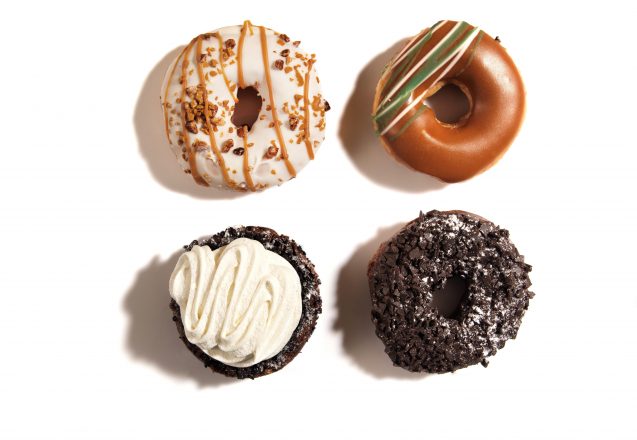Healthier Alternatives To White Sugar
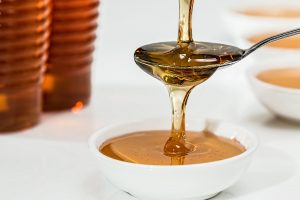 If it were just a matter of cutting out the added sugar in coffee or opting out of that candy bar after work, cutting down on added sugar wouldn't be a problem. However, today sugar is in everything. In fact, each year the average American consumes approximately 152 pounds of sugar in a year. That's three pounds or six cups a week. Great-great-great grandma and grandpa at only about two pounds of sugar 200 years ago. Can you avoid sugar entirely? Are there healthier alternatives to white sugar that you can use to avoid the health issues too much sugar causes?
If it were just a matter of cutting out the added sugar in coffee or opting out of that candy bar after work, cutting down on added sugar wouldn't be a problem. However, today sugar is in everything. In fact, each year the average American consumes approximately 152 pounds of sugar in a year. That's three pounds or six cups a week. Great-great-great grandma and grandpa at only about two pounds of sugar 200 years ago. Can you avoid sugar entirely? Are there healthier alternatives to white sugar that you can use to avoid the health issues too much sugar causes?
Sugar provides extra energy, but that means more calories.
The same is true of sugar substitutes, at least most sugar substitutes. Stevia is one of those exceptions. Stevia comes from the leaves of the Stevia rebaudiana bush in South America. It's 200 times sweeter than sugar, but has zero calories. Unlike sugar, stevia has certain properties that may help lower blood pressure and aid in preventing metabolic syndrome. Its ability to lower blood pressure is the reason you should take care if you already have low blood pressure. Some medications react negatively when you consume stevia.
Fresh fruit can be used in place of sugar.
If you bake, using natural applesauce to replace both the oil and the sugar in the recipe is an option. A paste made of dates is also another exceptionally good sweetener. You can sweeten most desserts naturally by adding fruit. For instance, if you buy yogurt and fruit in the grocery, it normally has added sugar. Make your own by chopping fresh or froze natural fruit into yogurt. While these options do add calories, they also come with nutritional benefits and are far more filling. Date paste is also a great option for diabetics, since it has a low GI rating.
Have you ever tasted monk fruit?
Like stevia, monk fruit has been valued for years for its sweetness. It's about 150 to 300 times sweeter than sugar. It doesn't affect blood glucose levels and has no calories. Monk fruit is also known as Luo Han Guo, longevity fruit and Buddha fruit. It was used by Buddhist Monks in early medicine for upper respiratory problems, and has been proven to reduce mast cells that produce the histamine that causes symptoms of allergies. It also boosts the immune system, since it's high in vitamin C. It also can promote heart health and reduce inflammation that can cause pain and serious conditions. Not everyone likes the taste, which is different than sugar and leaves a residual taste in the mouth. That's why some manufacturers add other ingredients that affect the nutrition of monk fruit. Some people shouldn't use it, like those who have pancreatic problems or allergies to pumpkins.
- A newer entrant in the sweetness market is the yacon plant. It has a flower like a daisy, but a root like a sweet potato. It can be eaten raw, tastes like a combination of apple, celery and watermelon and has the texture of water chestnuts. The root is boiled down to get a sugar substitute that lowers blood sugar.
- While 100 grams of honey is only slightly lower in calories than 100 grams of sugar, honey contains enzymes, iron, antioxidants, calcium, potassium, phosphorous, vitamin B6, riboflavin and niacin. A tablespoon of raw honey has a lower glycemic impact than a banana. Darker honey is more nutritious.
- Coconut sugar has a third fewer calories than table sugar. It is high in iron, zinc, polyphenols, potassium, antioxidants, calcium and other plant nutrients. It's a good sugar substitute for baking.
- Sugar alcohol, such as xylitol and erythritol have proven beneficial for diabetics and packed with antioxidants. Xylitol may prevent tooth decay, reduce the risk of infection, has a low GI, but also may cause diarrhea and gas.
For more information, contact us today at Habitat Health & Fitness
Are Artificial Sweeteners Really That Bad?
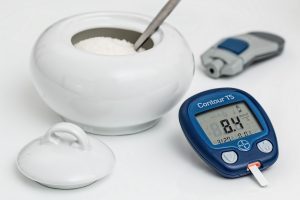 New clients at Habitat Health and Fitness in Lakeland, FL, ask me about sugar substitutes and artificial sweeteners. It's normally in response to the initial cravings of giving up sugar. Choosing to opt for an artificial sweetener may mean you're loading up your body with chemicals and that can be as bad or worse as using regular cane or beet sugar. In my estimation, giving up food with added sugar is one of the biggest obstacles in living healthier. Once you change your eating habits, you won't find adding sugar necessary and be able to taste the sweetness of fresh fruit and vegetables.
New clients at Habitat Health and Fitness in Lakeland, FL, ask me about sugar substitutes and artificial sweeteners. It's normally in response to the initial cravings of giving up sugar. Choosing to opt for an artificial sweetener may mean you're loading up your body with chemicals and that can be as bad or worse as using regular cane or beet sugar. In my estimation, giving up food with added sugar is one of the biggest obstacles in living healthier. Once you change your eating habits, you won't find adding sugar necessary and be able to taste the sweetness of fresh fruit and vegetables.
There are a number of artificial sweeteners according to the FDA.
The most common types of artificial sweeteners are acesulfame potassium, neotame, saccharin, aspartame and sucralose as the five types of artificial sweeteners. Each of these has a difference chemical formula and react with the body and brain differently. Artificial sweeteners change how the brain and taste buds perceive sweetness. In fact, many are far sweeter than sugar and create an overstimulation of the sweetness receptors in the brain. They can change how the brain perceives natural sugars and how low sugar foods like meat and vegetables taste. Those changes can make it difficult to stick with a healthy diet.
Are artificial sweeteners good for weight loss?
Because of their super sweetness, artificial sweeteners give you the sugar flavor with fewer calories than sugar. While you might think that cutting out the calories in sugar will automatically help you lose weight, that's not necessarily true for all artificial sweeteners. There are studies that say artificial sweeteners increase your appetite and those that suggest some really do cut your appetite. The problem may not be the artificial sweetener, but that people feel they're saving calories, so they indulge in other foods that contain more calories.
Diabetics may benefit from using artificial sweeteners.
Diabetics need to avoid foods that cause a rise in blood glucose levels, so artificial sweeteners may be a good option. However, as with all studies, there are always contradictory findings. Another study showed that people who drank soft drinks with artificial sweeteners increased their risk of developing diabetes significantly. Heritage may play a role in your body's reaction to artificial sweeteners. A study of Hispanic women showed their blood sugar level rose 14% and insulin levels rose 20%. if they drank an artificially sweetened soft drink before they drank a soft drink with sugar.
- Recent studies in seniors showed that those who drank the most artificially sweetened soft drinks had the biggest abdominal circumference measurement. Another study showed they increased the risk of diabetes by 67%.
- Studies showed that people who drank more than 24-ounces of artificially sweetened soft drink had a 23% increased risk of stroke compared to those who drank 12-ounces or less.
- Using artificial sweeteners can change the gut microbiome, which affects all parts of the body, including the brain. Some sweeteners have a negative impact on digestion and can cause gas and diarrhea.
- If you have diabetes or a metabolic disease, always check with your health care professional before changing your diet. For most people, giving up food with added sugar can be tough at first, but then the true sweetness of fruit becomes more apparent and added sugar isn't necessary.
For more information, contact us today at Habitat Health & Fitness
End Carb Cravings [Part 2]
If you missed our last post 7 tips to End Carb Cravings. 👈click the link and catch up 😃
Today I’d like to expand on that a little. Let’s talk about Fast Acting carbs.
Fast acting carbs are usually highly processed foods that quickly impact your blood sugar levels. Typically, the less processed the food the higher the fiber content.
Not all calories are equal.
In a recent study participants were given one of two milkshakes. Both shakes were identical in total calories and distribution in fats, proteins, and carbs.
The difference? One shake was fast acting carbs the other shake slow acting carbs.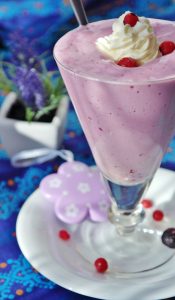
What did they find?
Fast acting carbs not only disrupted insulin (our fat storing hormone) but they also activated craving centers in the brain.
This explains what is happening when we “fall off the wagon.”
Fast acting carbs will affect the same areas of the brain of individuals who are suffering from addiction to alcohol and cocaine.
Break the Craving ➤ Reward Cycle
The fastest way to eliminate cravings and stabilize your metabolism is to reduce fast acting carbs and increase healthy fats, protein, and fiber.
Fast Acting carbs are linked to memory loss, brain fog, and ADD symptoms.
If you are interested in this topic, check out a book written by David Ludwig called Always Hungry.
Conclusion: Fast acting carbs are highly processed and disrupt blood sugar, insulin, and metabolism. Reducing fast acting carbs is the fastest way to eliminate cravings.
Action Step: Add in healthy fats, protein, and fiber to help stabilize blood sugar.
7 Tips to End Carb Cravings
Imagine. You’re eating healthy. You’re feeling good.
Then…
3 pm hits. You want something sweet!
Just then…you pass by the donut table in the office. You’ve avoided it all day.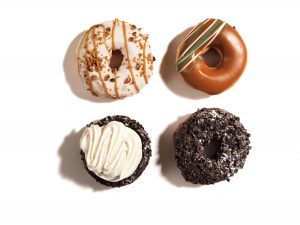
But suddenly…
You crack! Oops…oh no!
Here are 7 tips to gain control over your carb cravings.
Get 7 hours of Sleep: 🛌Lack of sleep causes a hormonal shift in the body which leads to an increase in hunger, cravings, and poorer choices.
Improving insulin sensitivity is very important when it comes to carb cravings. Magnesium is the nutrient to help with this. Sports Scientists recommend a minimum of 500 mg of magnesium daily.
The best forms of magnesium are glycinate or citrate. Taking it before bed will help you sleep. Using a magnesium oil will help with leg cramps and muscle soreness.
Fix your gut: Everyone has GOOD and BAD gut bacteria. The BAD bacteria feed on sugar. An overgrowth of bad bacteria will skyrocket your carb cravings. Take a good quality probiotic to help increase the GOOD bacteria.
Deal with stress: Cortisol is a stress hormone. The fastest way for your body to deal with excess cortisol is an insulin dump. What causes an insulin dump? Excess sugar! Avoid this cycle reduce stress using a method below.
Stress reducing activities: Prayer, meditation, yoga, leisure walking, and Epsom salt baths.
Try L-Glutamine & 5-HTP These two supplements have been shown to reduce carb/sugar cravings immediately.
5-HTP is a popular supplement to help with depression and anxiety.
L-Glutamine is an amino acid and provides the brain with an alternative source of energy. It also helps with alcohol cravings.
If you are on medications consult with your Dr before adding them in. 5-HTP shouldn’t be mixed with certain meds.
🚫Avoid artificial sweeteners studies show when we consume artificial sweeteners it excites the brain. It thinks sugar is coming. When real sugar doesn’t come in you will begin to crave sugar. You can’t fool your body.
Studies show people who use artificial sweeteners will consume an extra 300 calories daily.
Lean🥩 and Green 🥦stabilizing blood sugar is your best defense against carb cravings. 4-5 meals a day of protein and fiber will help stabilize blood sugar.
Bonus: Out of sight out of mind. If the sweet stuff isn’t around, most of the time you’ll just resist the craving and move on. The momentary weakness will usually pass within 15 minutes.
In summary, if you find yourself struggling with carb cravings check your sleep. You’ll notice cravings are worse when you are running ragged. Other than that add in a few supplements like probiotics, magnesium, L-glutamine, and 5-HTP (check with your Dr of course.) If you find yourself stressed out go for a leisure walk, pray or take an Epsom salt bath.
Read End Carb Cravings Part 2 for more on this topic.

![End Carb Cravings [Part 2]](https://habitatfit.com/storage/sites/195/2018/10/berries-berry-blur-275706-637x440.jpg)
